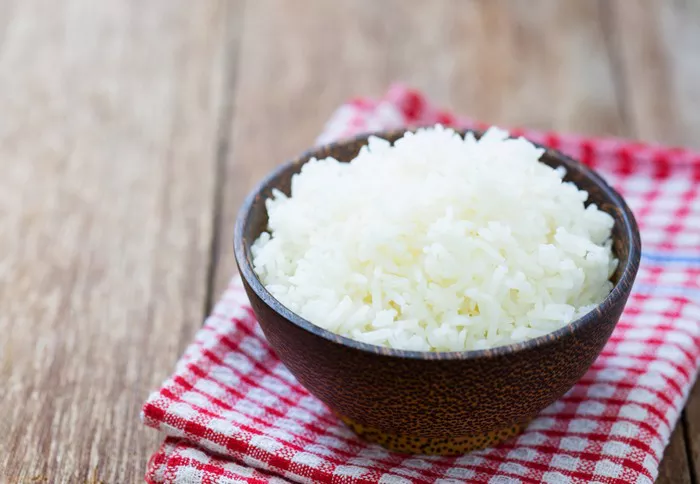Chinese cuisine is renowned worldwide for its rich flavors, diverse ingredients, and culinary finesse. However, for many, indulging in a hearty Chinese meal often leads to a postprandial phenomenon: the irresistible urge to take a nap. This common experience has prompted curiosity and speculation regarding the underlying reasons behind this culinary-induced drowsiness. In this article, we embark on a journey to unravel the mystery behind why Chinese food has a propensity to induce sleepiness.
The Complex Culinary Chemistry
At the heart of Chinese cuisine lies a sophisticated interplay of flavors, textures, and ingredients, meticulously balanced to create harmonious dishes. Central to this culinary artistry are key ingredients such as soy sauce, MSG (monosodium glutamate), and a variety of spices and herbs, each contributing to the distinctive taste profile of Chinese dishes.
One prominent theory suggests that the high sodium content in many Chinese dishes, primarily attributed to the generous use of soy sauce, can lead to dehydration and subsequent fatigue. While excessive sodium intake can indeed result in dehydration, the notion that it alone is responsible for post-Chinese meal drowsiness oversimplifies the complex interplay of factors at play.
The Role of MSG: Fact vs. Fiction
MSG, a flavor enhancer commonly used in Chinese cooking, has long been a subject of controversy. Despite extensive scientific evidence debunking the myth of MSG-induced adverse effects, its reputation as a culprit for headaches and drowsiness persists in popular discourse.
In reality, MSG, when consumed in moderate amounts, is unlikely to cause any significant adverse reactions. Its ability to enhance the savory taste of food, known as umami, adds depth and complexity to Chinese dishes. While individual sensitivity to MSG may vary, attributing post-Chinese meal sleepiness solely to MSG oversimplifies a multifaceted phenomenon.
The Carbohydrate Conundrum
Carbohydrates, particularly those derived from rice and noodles, form the staple component of many Chinese meals. Upon ingestion, carbohydrates are broken down into glucose, the primary source of energy for the body and brain. However, the consumption of large quantities of carbohydrates in a single sitting can trigger a spike in blood sugar levels, followed by a subsequent crash, leading to feelings of lethargy and drowsiness.
Moreover, the glycemic index (GI) of Chinese dishes can vary depending on factors such as cooking methods and accompanying ingredients. Dishes with a high GI, characterized by rapidly digestible carbohydrates, can exacerbate postprandial fatigue. Conversely, incorporating protein-rich foods and fiber, such as tofu and vegetables, into Chinese meals can help mitigate the glycemic response and promote sustained energy levels.
The Influence of Culinary Tradition and Culture
Beyond the realm of nutritional science, the propensity for Chinese food to induce sleepiness may also stem from cultural and societal factors. In Chinese culinary tradition, meals are often regarded as a communal experience, imbued with a sense of warmth and conviviality. The leisurely pace of dining, accompanied by hearty servings of comfort food, encourages relaxation and contentment, fostering an environment conducive to postprandial rest.
Furthermore, the ritual of consuming tea, particularly green tea, following a meal is deeply ingrained in Chinese culture. While tea contains caffeine, its moderate caffeine content is unlikely to counteract the soporific effects of a heavy meal. Instead, the act of sipping warm tea serves as a soothing conclusion to a satisfying culinary experience, further enhancing the desire for post-meal relaxation.
Strategies for Mitigating Post-Chinese Meal Sleepiness
While the allure of succulent Chinese cuisine may tempt indulgence, there are strategies to mitigate the onset of post-Chinese meal sleepiness:
1. Mindful Portion Control: Practice moderation and portion control when enjoying Chinese meals to prevent overconsumption of carbohydrates and sodium.
2. Balanced Meal Composition: Opt for a balanced combination of protein, fiber-rich vegetables, and complex carbohydrates to promote sustained energy levels and satiety.
3. Hydration: Stay hydrated by drinking water or herbal tea alongside your meal to counteract the dehydrating effects of sodium and aid digestion.
4. Light Physical Activity: Engage in light physical activity, such as a leisurely walk, after dining to stimulate digestion and alleviate feelings of lethargy.
Conclusion
In essence, the phenomenon of post-Chinese meal sleepiness is a multifaceted interplay of nutritional composition, cultural tradition, and individual physiology. While factors such as sodium content, carbohydrate intake, and meal composition undoubtedly influence postprandial fatigue, the cultural context and ritualistic aspects of Chinese dining also play a significant role.
Rather than viewing post-Chinese meal sleepiness as an unavoidable consequence, it invites us to embrace the holistic experience of culinary indulgence. By adopting mindful eating practices and incorporating balanced meal strategies, we can savor the delights of Chinese cuisine while maintaining vitality and well-being. So, the next time you find yourself succumbing to the allure of a sumptuous Chinese feast, savor each bite mindfully, and perhaps indulge in a rejuvenating post-meal stroll, embracing the culinary journey in all its richness and complexity.
Related topics:



























